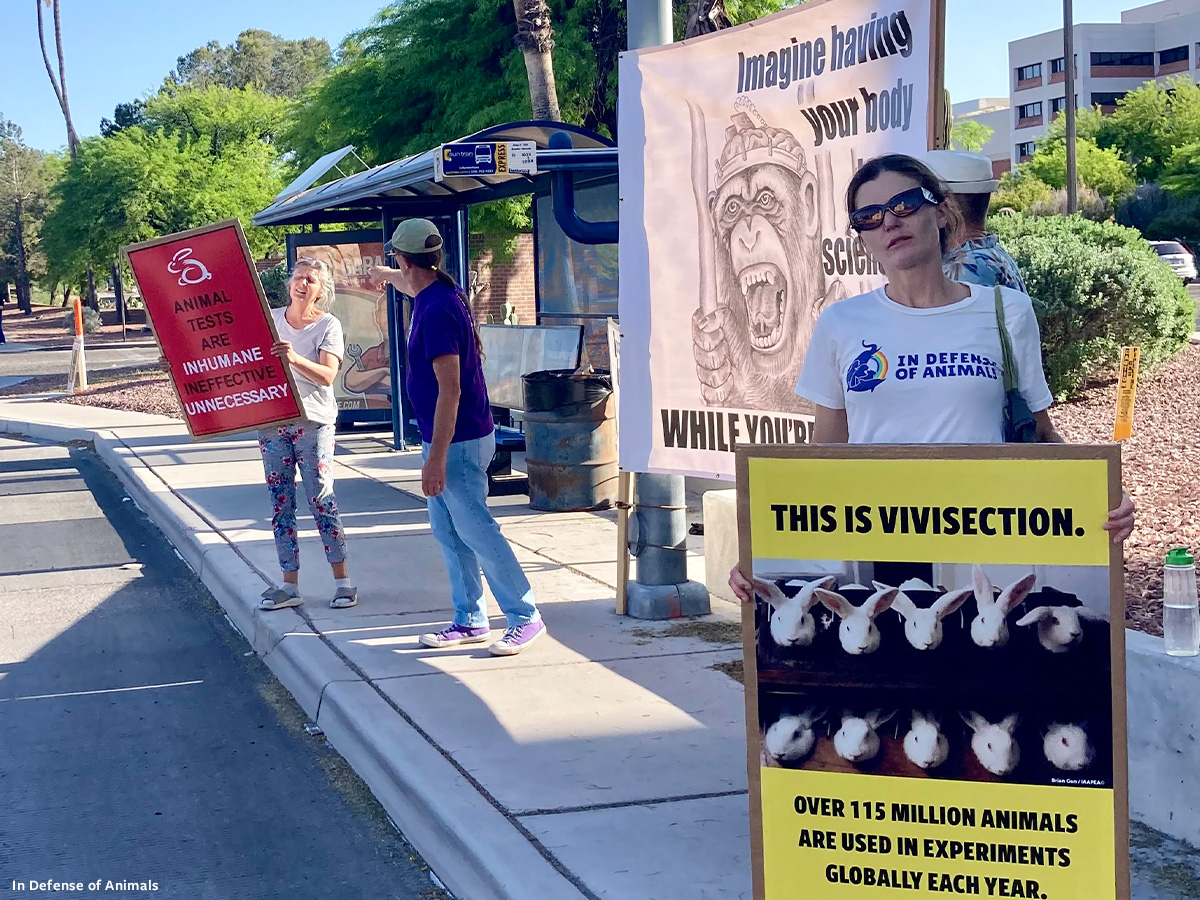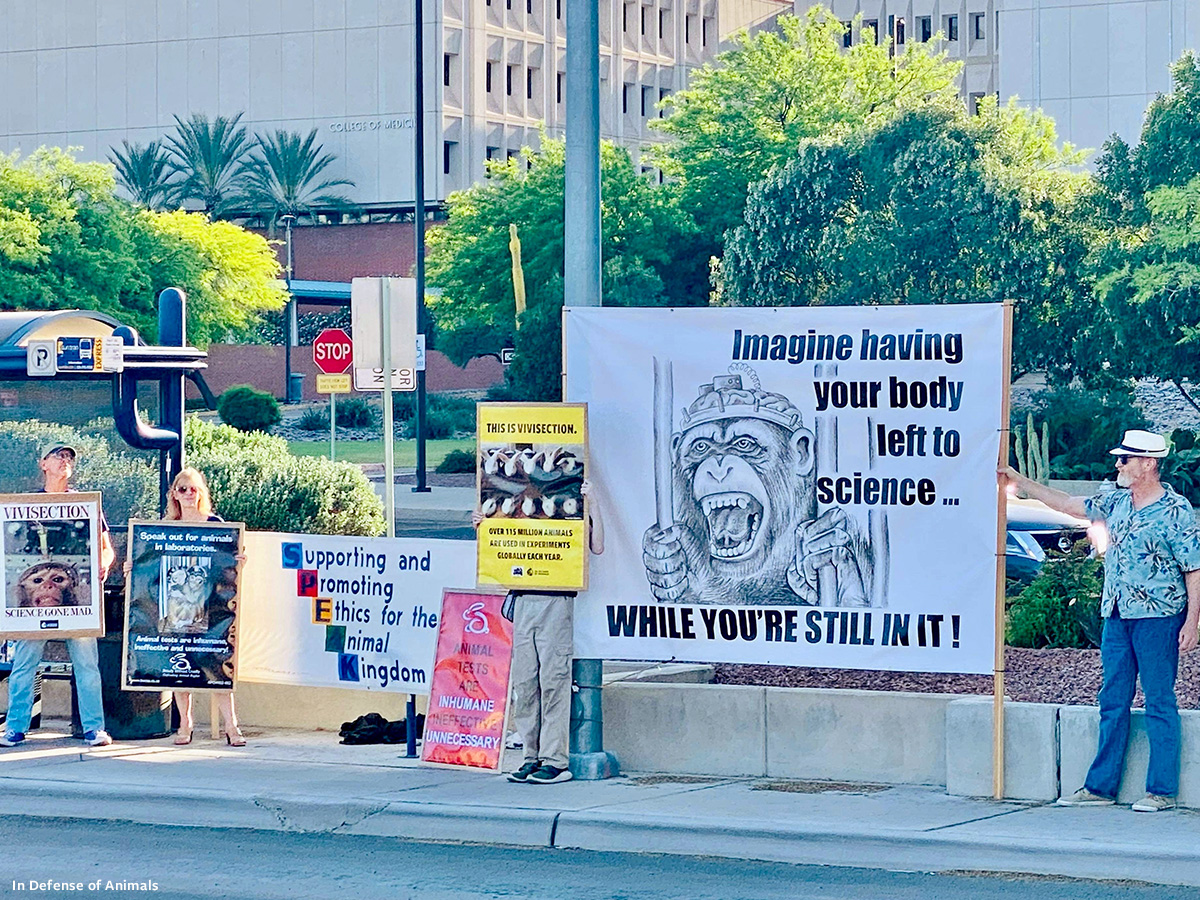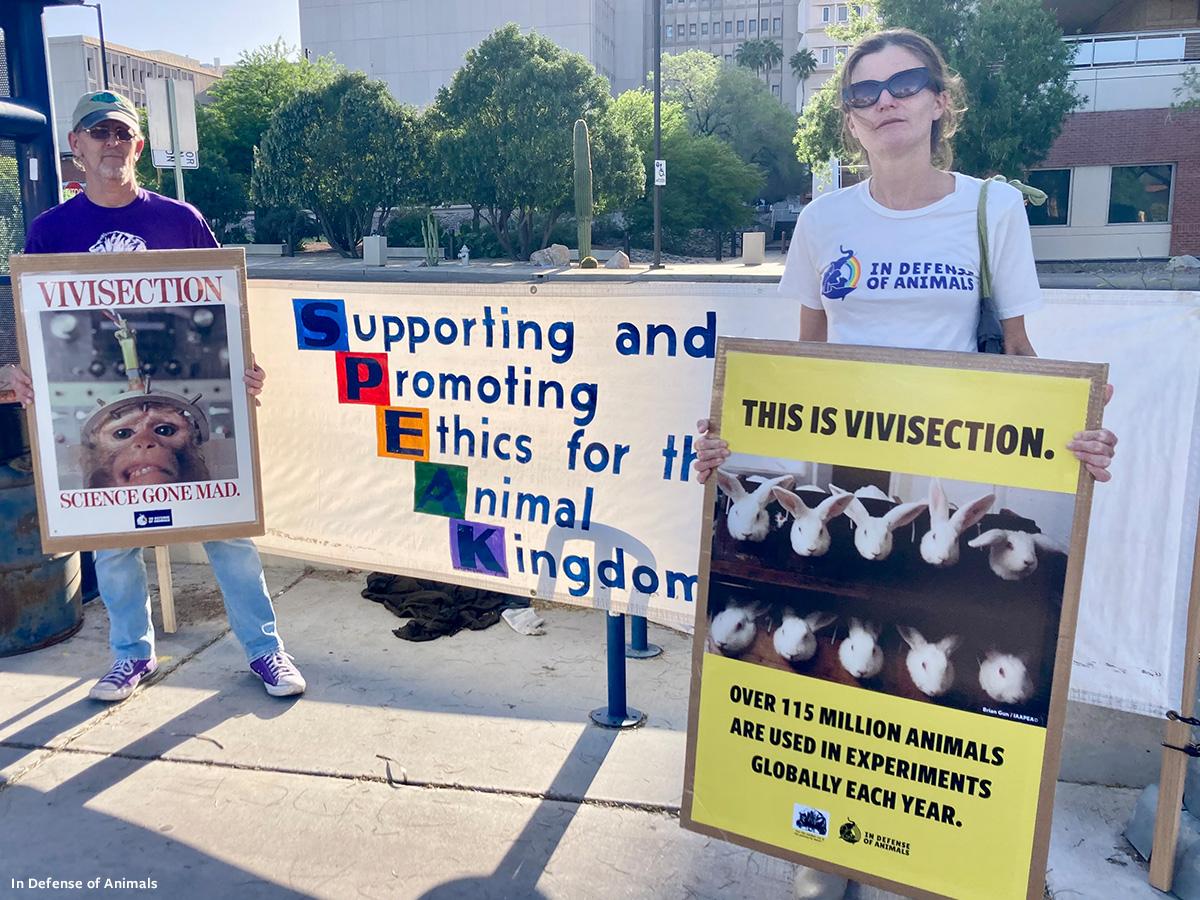Cruel Animal Experiments Protested In Arizona
Activists gathered for a protest with signs and banners in front of the University of Arizona’s College of Medicine on April 24, 2023. From brain-mapping experiments on primates to surgical training procedures on live pigs, the university has been thoroughly entrenched in the archaic practice of vivisection on animals, causing unimaginable suffering and death to the involuntary participants.
We co-hosted this protest with Tucson-based animal rights group Supporting and Promoting Ethics for the Animal Kingdom (SPEAK) at the University of Arizona (UofA) for the second time as part of World Week for Animal In Laboratories (WWAIL). Last year’s protest was held on April 21.

It is absolutely unacceptable that this highly regarded institution continues to participate in animal-based research when so many non-animal alternatives are available that are not only cruelty-free, but produce results more relevant to humans.
Alternatives to animal testing include in vitro studies, computer modeling, epidemiological studies, cell and tissue cultures, clinical studies, CAT, PET, and MRI scans, quantitative-structure activity, relationship analysis, chemical toxicity assays, and supervised operating room experience.

Drug failures that involved animal testing include:
Vioxx: This arthritis drug killed as many as 140,000 people after having been declared safe for other animals. The drug was tested in eight studies using six different animal species, yet it proved to be lethal when taken by humans.
Opren: This antirheumatic drug killed 76 people and caused serious illness to 3,500 others even though it had undergone seven years of animal testing.
Eraldin: Thousands of people were adversely affected after taking this heart medication and further animal tests failed to find a single species that reacts to this drug in the same way as humans.
The drugs listed above are just a few examples of the far-reaching disconnect between animal “models” and cruelty-free human-relevant research alternatives.
Since 2009, SPEAK has held semi-regular vivisection protests at the University of Arizona. At that time, SPEAK was made aware of their brain-mapping experiments on primates. An informant told them about Pepe, a primate who was the victim of a botched cranial surgical procedure.
With the exception of a one-time Last Chance for Animals action at the university in 2010, the vivisection issue wasn’t picked up again until last year when the Physicians Committee for Responsible Medicine (PCRM) came to Tucson with its campaign against the university’s use of live pigs for surgical training. After that action had run its course, SPEAK decided to keep the momentum going with WWAIL protests last April and again this year, which we co-hosted. SPEAK also held a protest at the university in the fall of last year.
When SPEAK was allowed to take a tour of the animal laboratory area several years ago, there were many animals one would expect to see in such a setting: rabbits, guinea pigs, hamsters, mice, and rats, among others. There was also a primate room. Although SPEAK knows that the university’s Department of Neuroscience was using primates for brain-mapping experimentation for several years, it does not have data to show when it began and has not monitored such activity via FOIA requests in recent years. Therefore, we cannot say with certainty that it is still in progress. However, surgical training using live pigs is still taking place, even after PCRM’s campaign in 2022. (It should be noted that the university’s College of Medicine in Phoenix is one of a vast number of medical colleges that do not use live animals for surgical training procedures.)
SPEAK, along with our support, will be continuing the campaign against animal experimentation at the University of Arizona, with semi-regular protests and new FOIA data.
For WWAIL this year, In Defense of Animals also held an online “fireside chat” on anti-vivisection with our Senior Campaigner for Justice for Animals Doll Stanley, and our Campaign Specialist for Captive Animals Brittany Michelson. They shared both a historical perspective on our involvement in anti-vivisection campaigns and our current campaign initiatives.
To learn more about what you can do, visit our Vivisection campaign. Donations to support our work are always needed and appreciated.


